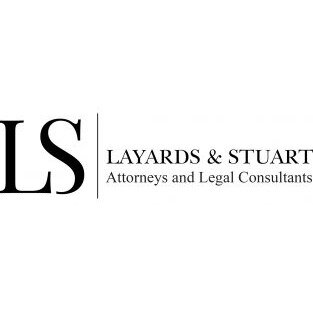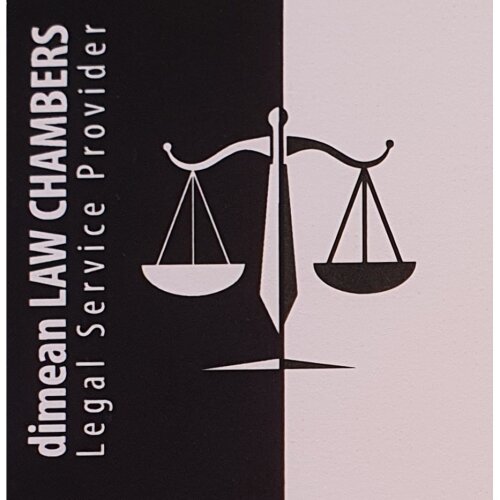Best Employment Rights Lawyers in Sri Lanka
Share your needs with us, get contacted by law firms.
Free. Takes 2 min.
Or refine your search by selecting a city:
List of the best lawyers in Sri Lanka
About Employment Rights Law in Sri Lanka
Employment Rights Law in Sri Lanka governs the relationship between employers and employees, ensuring fair treatment and establishing a set of rules for employment practices. Sri Lankan employment law includes regulations on working hours, wages, termination, and workplace conditions. It aims to protect the rights of employees while balancing the interests of employers, and is primarily guided by the Shop and Office Employees Act, the Wages Board Ordinance, and the Employment of Women, Young Persons, and Children Act.
Why You May Need a Lawyer
There are various scenarios in which you might require legal assistance regarding Employment Rights in Sri Lanka:
- Unfair dismissal or wrongful termination claims involving disputes over wrongful dismissal or redundancy.
- Contractual issues where there is a disagreement over the terms and conditions of employment contracts.
- Discrimination issues where you may need to address workplace discrimination based on gender, religion, or ethnicity.
- Wage disputes concerning unpaid wages or unauthorized deductions from salaries.
- Workplace harassment or bullying requiring legal intervention.
Local Laws Overview
Understanding the key aspects of employment laws in Sri Lanka is crucial for both employers and employees:
- Working Hours and Leave: The standard working hours and leave entitlements, including annual leave, sick leave, and public holidays, are regulated by law.
- Minimum Wage: The Wages Board Ordinance ensures minimum wage levels for various sectors and protects against wage disparity.
- Termination of Employment: Processes for terminating employment must comply with legal standards, including appropriate notice periods and justification.
- Health and Safety: Employers are required to maintain a safe working environment to ensure employee health and wellbeing.
- Discrimination: Laws are in place to prevent workplace discrimination and promote equality among employees.
Frequently Asked Questions
What is the legal working time in Sri Lanka?
The standard working time is typically 8 hours a day or 45 hours a week, but this can vary based on the industry and employment contract.
What are my rights concerning public holidays?
Employees are entitled to 14 public holidays as per the Shop and Office Employees Act, and employment contracts may provide additional terms.
How is overtime pay regulated?
Overtime pay is usually at 1.5 times the normal hourly rate, although this may vary depending on employment agreements.
Can my employer terminate my contract at will?
No, termination must comply with lawful procedures, including providing adequate notice or compensation in lieu of notice.
What steps can I take if I face discrimination at work?
It is advised to document incidents and consult with a lawyer or a trade union to address discrimination legally.
Are there specific protections for female employees?
Yes, laws protect against discrimination and provide maternity leave rights and safe working conditions for women.
How do I raise a grievance against my employer?
Follow the grievance procedure outlined in your employment contract or company policy, and seek legal advice if necessary.
What constitutes unfair dismissal?
Unfair dismissal may include termination without valid reason, lack of due process, or breaches of contract terms.
How can I calculate my termination benefits?
Termination benefits are calculated based on the terms set out in the individual's contract, and the Workers' Compensation Ordinance provides guidelines for compensation calculations.
What should I do if I have a dispute over wages?
Attempt to resolve the issue internally first, and if unresolved, seek advice from a lawyer or the labour tribunal.
Additional Resources
The following resources may be helpful for individuals seeking more information or assistance with employment rights:
- Department of Labour, Sri Lanka: Offers guidance on labour standards and legal advice on employment matters.
- Lanka Equal Rights Partnership: Provides support for discrimination and equality issues in the workplace.
- Trade Unions: Various unions in Sri Lanka offer support and advocacy for workers' rights.
Next Steps
If you need legal assistance with Employment Rights, consider the following steps:
- Consult with an employment lawyer for personal advice on your situation.
- Gather all relevant documents, including employment contracts, pay slips, and any correspondence with your employer.
- Contact the Department of Labour for further guidance and potential mediation.
- Join a trade union for support and advocacy on your behalf.
Lawzana helps you find the best lawyers and law firms in Sri Lanka through a curated and pre-screened list of qualified legal professionals. Our platform offers rankings and detailed profiles of attorneys and law firms, allowing you to compare based on practice areas, including Employment Rights, experience, and client feedback.
Each profile includes a description of the firm's areas of practice, client reviews, team members and partners, year of establishment, spoken languages, office locations, contact information, social media presence, and any published articles or resources. Most firms on our platform speak English and are experienced in both local and international legal matters.
Get a quote from top-rated law firms in Sri Lanka — quickly, securely, and without unnecessary hassle.
Disclaimer:
The information provided on this page is for general informational purposes only and does not constitute legal advice. While we strive to ensure the accuracy and relevance of the content, legal information may change over time, and interpretations of the law can vary. You should always consult with a qualified legal professional for advice specific to your situation.
We disclaim all liability for actions taken or not taken based on the content of this page. If you believe any information is incorrect or outdated, please contact us, and we will review and update it where appropriate.
Browse employment rights law firms by city in Sri Lanka
Refine your search by selecting a city.

















